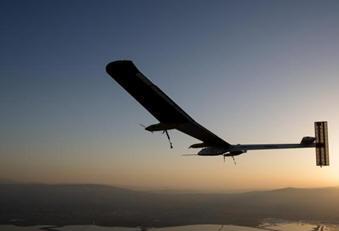|
Bertrand went into episodes of hypnotic trance to
stimulate his activity, fall asleep or wake up faster.
Over the 72 hour period, he rested 35 time period of 20
minutes on a seat specially developed by Lantal, a Swiss
company which is a technology leader in aircraft seats. The
EPFL researchers monitored the pilot’s physiological
data using solutions which are habitually reserved for
laboratories. The encephalogram and electrocardiogram
data will be analyzed and correlated with the outcomes
of the vigilance and reaction time tests by the
Hirslanden physicians and will play a key role in
defining a rest strategy for the pilot during the round
the world flight.
André Borschberg (Co-founder, CEO and pilot of Solar
Impulse) followed Bertrand Piccard throughout the
experiment and explained that: “The team is on the point
of finalizing the second aircraft which will have a
theoretically infinite range. Now the challenge is to
make the pilot as ‘enduring’ as the aircraft! We must
learn to manage our own energy, to be able to recognize
the point at which fatigue is gaining the upper hand and
find solutions to remain alert and vigilant.”
The personalized dietary strategy developed by Nestlé
Health Science has proved appropriate in terms of both
nutrition and taste. To respond to the constraints
caused by temperature and pressure variations in the
cockpit, Nestlé Health Science has developed several
different packaging solutions which Bertrand Piccard has
been able to test.
After this successful response to the challenge, the two
pilots can now focus on the final phase of preparation
for their round the world flight. The next 18 months
will be a period of intense activity for the Solar
Impulse team. Final assembly of the new aircraft in
Payerne (VD, Switzerland) will begin in February 2014.
The presentation of this second prototype in April will
be followed by a program of test flights and training at
the aerodrome in Payerne. The aircraft and pilots should
be ready to take off on the successive legs of their
solar-powered round the world flight beginning in March
2015.
Swiss pioneers Bertrand Piccard (Chairman) and André
Borschberg (CEO) are the founders, pilots and the
driving force behind Solar Impulse, the first airplane
that can fly day and night without fuel or polluting
emissions. Solar Impulse is a unique adventure that aims
to bring emotions back at the heart of scientific
exploration, a flying laboratory to find innovative
technological solutions for today’s challenges and a
vision to inspire each of us to be pioneers in our
everyday lives.
This revolutionary carbon fiber airplane has the
wingspan of a Boeing 747 (63.4m / 208 ft) and the
weight of a small car (1,600kg / 3,527 lb). It is
the result of seven years of intense work,
calculations, simulations and tests by a team of
about 80 people and 100 partners and advisors. A
plane so big and light has never been built before.
The 12,000 solar cells built into the wing provide
four 10HP electric motors with renewable energy. By
day the solar cells recharge the 400kg / 881 lb
lithium batteries which allow the plane to fly at
night.
|



